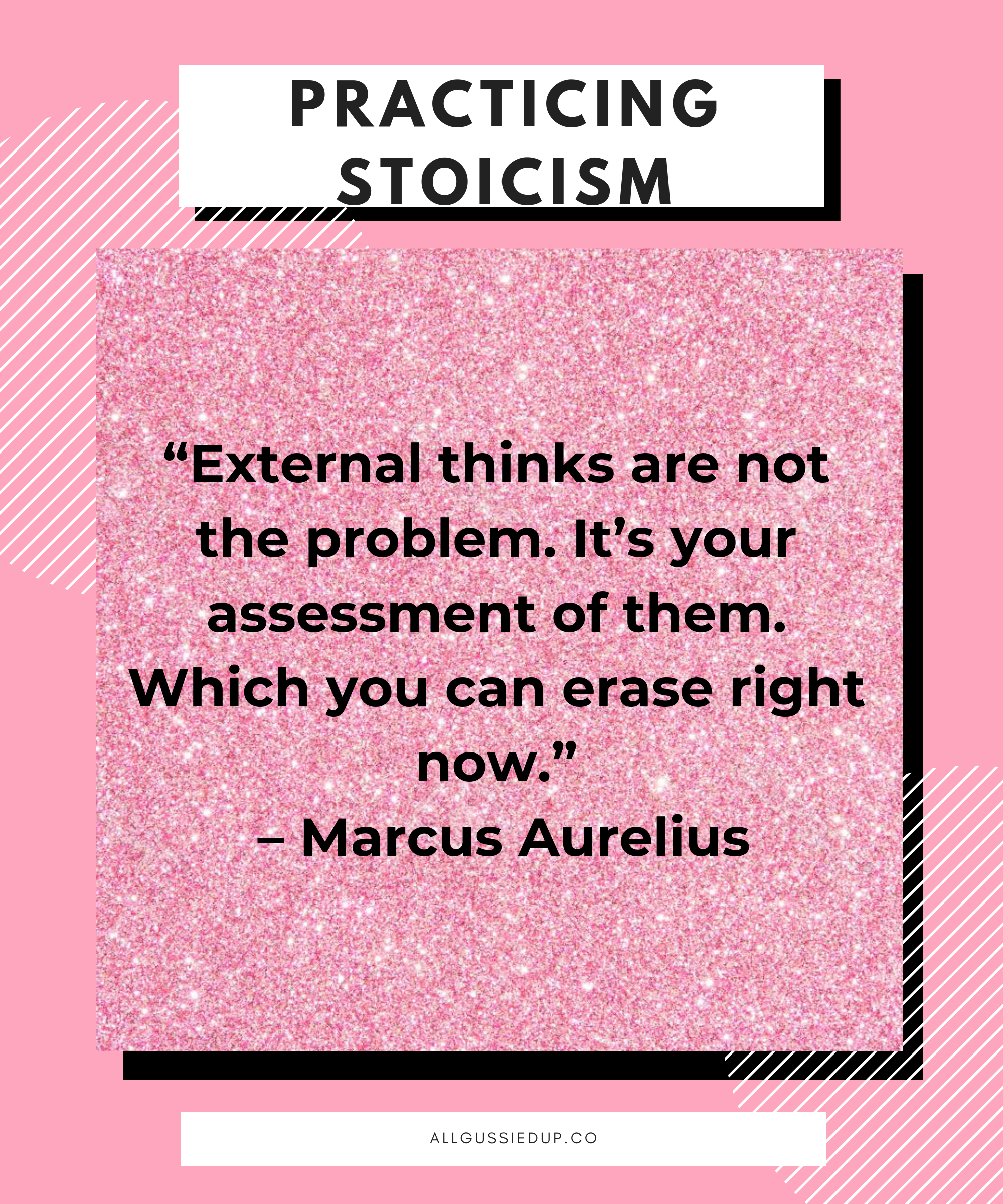
…Is a quote from stoic philosopher, Marcus Aurelius on the basis of what stoicism is.
I began studying stoicism a few months ago after discovering The Daily Stoic, a book by Ryan Holiday. Let me tell ya, has been life changing.
You know that saying “you can’t control what happens but you can control how you react”? This is stoicism to a T.
A brief synopsis on Stoicism straight from the source: Stoicism was founded in Athens by Zeno of Citium in the early 3rd century BC, but was famously practiced by the likes of Epictetus, Senecaand Marcus Aurelius. The philosophy asserts that virtue (such as wisdom) is happiness and judgment should be based on behavior, rather than words. That we don’t control and cannot rely on external events, only ourselves and our responses.
Stoicism has just a few central teachings. It sets out to remind us of how unpredictable the world can be. How brief our moment of life is. How to be steadfast, and strong, and in control of yourself. And finally, that the source of our dissatisfaction lies in our impulsive dependency on our reflexive senses rather than logic.
Stoicism doesn’t concern itself with complicated theories about the world, but with helping us overcome destructive emotions and act on what can be acted upon. It’s built for action, not endless debate.
I’ve written briefly about anxiety here and there on my blog and on Instagram, and I can confidently say that reading The Daily Stoic each day AND journaling my thoughts in correspondence to that day’s reading has significantly impacted how I feel in a positive way. It has helped my anxiety tenfold…and I feel like I’m just getting started.
The book includes 365 “meditations” for every day of the year, and you start on the day you get the book. Each meditation is one page or less, so super easy to digest and take the time to read each morning.
Here are a few excerpts so you can get the idea:
“There’s nothing worse than a wolf befriending sheep. Avoid false friendship at all costs. If you are good, straightforward, and well meaning it should show in your eyes and not escape notice.”
—Marcus Aurelius, Meditations, 11.15
It’s pretty obvious that one should keep away from the wicked and two-faced as much as possible—the jealous friend, the narcissistic parent, the untrustworthy partner. At first glance, Marcus Aurelius is reminding us to avoid false friends.
But what if we turn it around? What if, instead, we ask about the times that we have been false to our friends? Ultimately that’s what Stoicism is about—not judging other people’s behavior, but judging our own. We’ve all been a frenemy at one point or another. We’ve been nice to their face—usually because there was something in it for us—but later, in different company, we said how we really felt. Or we’ve strung someone along, cared only when things were going well, or declined to help even though someone really needed us. {Source}
“You have proof in the extent of your wanderings that you never found the art of living anywhere—not in logic, nor in wealth, fame, or in any indulgence. Nowhere. Where is it then? In doing what human nature demands. How is a person to do this? By having principles be the source of desire and action. What principles? Those to do with good and evil, indeed in the belief that there is no good for a human being except what creates justice, self-control, courage and freedom, and nothing evil except what destroys these things.”
—Marcus Aurelius, Meditations, 8.1.(5)
What’s the meaning of life? Why was I born? Most of us struggle with these questions—sometimes when we’re young, sometimes not until we’re older. Rarely do we find much in the way of direction.
But that’s simply because we miss the point. As Viktor Frankl points out in Man’s Search for Meaning, it is not our question to ask. Instead, it is we who are being asked the question. It’s our lives that are the answer.
No amount of travel or reading or clever sages can tell you what you want to know. Instead, it is you who must find the answer in your actions, in living the good life—by embodying the self-evident principles of justice, self-control, courage, freedom, and abstaining from evil.
This behavior is beneath us—and worth remembering the next time we accuse someone else of being a bad friend.
“Dig deep within yourself, for there is a fountain of goodness ever ready to flow if you will keep digging.”
—Marcus Aurelius, Meditations, 7.59
Today, we could hope that goodness comes our way—good news, good weather, good luck. Or we could find it ourselves, in ourselves. Goodness isn’t something that’s going to be delivered by mail. You have to dig it up inside your own soul. You find it within your own thoughts, and you make it with your own actions.
On top of helping with my anxiety, reading and journaling daily in The Daily Stoic has also helped me practice how to stay stoic with unfortunate events, whether it’s when I didn’t get my way, something didn’t turn out the way I expected, or if I lose something important. It is also teaching me to be grateful for everything, even those unfortunate things.
Pick up your own copy HERE.
With that, I hope you have a fabulous weekend!
xo, Lynn





Leave a Reply